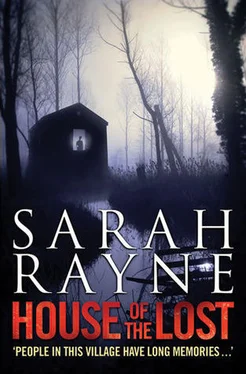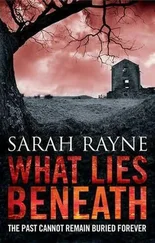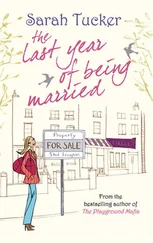Sarah Rayne
HOUSE OF THE LOST
ACKNOWLEDGEMENT

Grateful thanks are due to Hildegard and Ron Harman, who provided me with practical travel routes for Central and Eastern Europe during the writing of this book.
CHAPTER ONE

Messrs Hewitt and Wellsbury
Solicitors and Notaries Public
Lincoln’s Inn Fields
London
30 November 20—
Dear Mr Kendal
ESTATE OF CHARMERY KENDAL
(DECEASED)
Under the terms of Miss Kendal’s will, the ownership of the property known as Fenn House, Melbray, in the County of Norfolk, passes to you.
You will appreciate that the shocking manner of Miss Kendal’s death delayed probate, but it has finally been granted and so we are sending you the keys to Fenn House by special courier, together with a copy of the transfer of title.
Again, we offer our condolences for your cousin’s dreadful and untimely death.
Yours sincerely Hewitt and Wellsbury
Theo Kendal had never expected to see Fenn House again and he had certainly never expected to own it. He had not been to the place for a good ten years and if his cousin Charmery had not died, he would have continued to live in his own small north London house, churning out a novel a year, eking out his income with a little dilettante journalism and some radio scripts, and managing to forget for most of the time that Charmery had ever existed. But because she was dead he was driving into the wilds of Norfolk at the beginning of a cold grey December, along roads which a decade ago had been familiar but which now included a confusing bypass which sent him speeding in the wrong direction for half a dozen miles.
Melbray, when he finally reached it, had changed very little. Here was the high street with the tiny market square, a scattering of shops, the local pub and a doctor’s surgery. It had been the local doctor who found Charmery’s body; Theo had not met him but he had seen him being accosted by reporters on TV news bulletins after the inquest. The doctor had clearly disliked the attention; he had pushed the microphones away and walked off with his shoulders hunched and his coat collar turned up defensively. Theo, his emotions still in tatters over Charmery’s death, had been grateful for the man’s discretion.
A mile beyond the village was the turning to Fenn Lane. Once this turning had caused a lurch of delighted anticipation because it had meant the holiday was really beginning: long drowsy afternoons by the river with the sunlight glinting on it, pleasantly haphazard meals and lawn cricket played with whichever members of the family were around. It meant being with Charmery.
But there was no lurch of anticipation this afternoon, because four months ago someone had crept into the old boathouse where Theo and Charmery used to hide, and had forced Charmery into the water and held her below the surface with a boathook until she was dead. The local police, diligently reporting to Theo as Charmery’s closest living relative, had explained that forensic reconstructions and investigations suggested the murderer had probably assumed the body would drift out into the Chet and be lost. Instead, it became wedged in the struts of the landing stage and was found three days later. A lot of the most useful evidence had been washed away, of course, but they had been able to perform DNA tests on the body – none had produced any results, however.
The police had questioned Theo, which he supposed was inevitable, given that he was the sole beneficiary of Charmery’s will, and had asked him to provide an alibi, which he had not been able to do since he had been at home working. The various aunts and uncles and cousins whom he and Charmery shared had been questioned as well: a matter of trying to build up a picture of the victim’s life, the police had said, which had not been well received. Nancy Kendal, a formidable unmarried aunt, said the questions were sheer impudence and she would write to the chief constable, but Theo’s Great-uncle Frederick Francis Kendal – Guff to most people – said peaceably that the police had to look at all aspects of the situation.
Theo, driving down Fenn Lane four months later, with Charmery’s killer still uncaught, did so with a degree of apprehension. For the first time, Fenn House struck him as vaguely sinister. The family, hearing Charmery had left the place to Theo, supposed he would sell it. It was all very well as a holiday house, they said; they had enjoyed all those summers there, and the autumn weekends and the Christmases, but surely no one would want to live there permanently? It might not be actually in the fen country, despite its name, but it was still one of Norfolk’s remoter parts.
At first Theo had also thought he would sell it, probably without seeing it again, but Charmery’s murder had churned up such a scalding array of emotions he had been unable to work for the past four months. Last week, receiving Fenn’s keys from the solicitor’s office, exhausted with staring at a blank computer screen and trying to write a book that refused to be written, he had made the decision to face the memories and the pain head on, and spend a couple of months living there. He was trusting to luck that the ghosts and the journalists would not realize he was in residence. Although he thought he could deal with the ghosts and he could certainly deal with the occasional reporter prowling around for fag ends of information about the Fenn House Drowning. In London, with the book barely a quarter written and the deadline for its delivery to his publishers looming alarmingly close, it had seemed a good idea, but with river mist creeping over the road and a cold dark house ahead, it was starting to feel like downright lunacy.
The car headlights picked out the tanglewood garden that had grown up round the house, then swept over the front of the house itself. Theo frowned, realizing he had not even asked the solicitors if the electricity was on. He had a vision of himself wandering through dim rooms by candlelight or oil lamp, wrapped in blankets to keep warm. Even in the fading light Fenn House looked dismal and somewhat neglected. Charmery’s parents had always looked after it meticulously. ‘Well, they had the money,’ Theo’s mother used to say. But they had been dead for more than five years and it looked as if there had not been as much money as everyone thought; even in this light Theo could see the missing roof tiles and peeling paintwork. For the last few miles he had been cherishing the idea that Charmery had bequeathed him the enchanted memories of their shared secret teens, but it was starting to look as if she had left him an expensive liability.
He unlocked the door and stepped inside and, as he did so, there was a curious sensation deep within his mind: a shutter-flash of something insistent and so startlingly real he stopped dead. It imprinted itself vividly on his vision. It was the image of a young boy entering a shadowy and silent house, fearful of what might be waiting for him in the gathering dusk.
Entering the house at dusk was always difficult for Matthew, because even if the house seemed silent, he could never be sure who might be inside. His father had to have quiet to write his books; Matthew understood this. Father’s work was important – books were very important and so were the newspapers for which Father sometimes wrote – so he was always careful not to disturb him. But there were times when the house became wrapped in a different quietness; a deep, frozen silence, which Matthew hated because it was as if the building was deliberately being very still and silent, like an animal trying to avoid being noticed by predators. Predators meant people who hunted and sometimes killed: Matthew knew that because Father liked him to know as many words as possible.
Читать дальше













